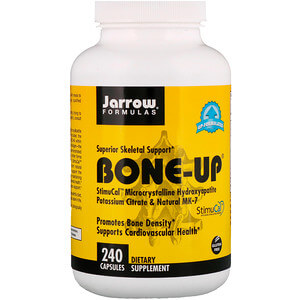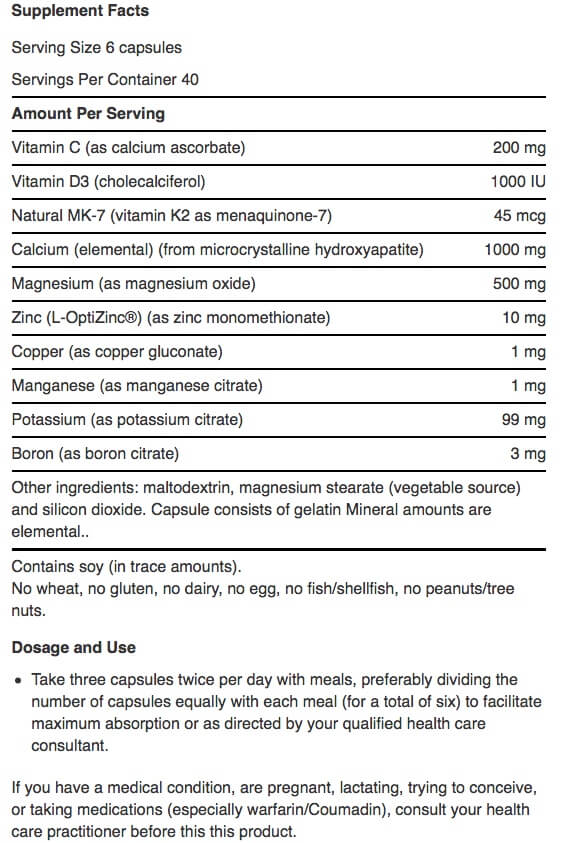Jarrow Bone Up 240 Capsules

Throughout life, cells known as osteoblasts construct bone matrix and fill it with calcium. At the same time, osteoclasts work just as busily to tear down and resorb bone. This fine balance is regulated by many factors, including systemic hormones and cytokines. Bone mass reaches its peak by the middle of the third decade of life and plateaus for about ten years, during which time bone turnover is constant, with bone formation approximately equaling bone resorption.
As our bodies age, this fine balance is lost. As the relative hormone levels shift in midlife — more drastically in women than in men — the osteoclasts gain the upper hand and bone mass begins to dwindle. Some bone is already being lost by the time women reach menopause, but the rate of loss can increase up to tenfold during the first five years after menopause.
From midlife on, bone health is threatened by an increasing imbalance between osteoblast and osteoclast coupling function.
Weight-bearing exercise, eating a variety of healthy foods and avoiding tobacco and alcohol can help maintain healthy bones. Foods that promote bone health include mineral and vitamin sources — dark green leafy vegetables, broccoli, legumes, canned salmon, sardines — and dairy products like milk and cheese.
Scientific literature documents the need for a wide range of minerals and vitamins vital to maintaining strong, healthy bones ... including magnesium, calcium, and vitamin D. Magnesium is one of the body’s most important minerals. In bone mineral health, magnesium (or lack of it) influences the bone mineral matrix and its ability to metabolize needed minerals for repair and rebuilding.
Calcium is needed for more than just healthy bones. It is also important for muscle contraction, blood vessel contraction and expansion, the secretion of hormones and enzymes, and sending messages through the nervous system. A meta-analysis of 56 clinical trials demonstrated a significant impact on heart health as a result of increased calcium intake by 1,000 to 2,000 mg/day.
Magnesium is one of the body’s most important minerals. It is required as a cofactor in hundreds of enzymatic processes within cells.
Magnesium is a major factor in relaxing the smooth muscles within the blood vessels, thereby reducing peripheral vascular resistance and promoting a healthy cardiovascular system.
Magnesium positively influences the bone mineral matrix and its ability to metabolize minerals needed for repair and rebuilding. Scientific literature documents the need for a wide range of minerals, including calcium and magnesium, that are vital to maintaining strong, healthy bones.
Calcium and other minerals are best not taken with fiber, because fiber can interfere with their absorption.
Calcium supplements are best taken with meals. They should always be taken with a full glass of water, juice, or other liquid to enhance solubility.
Gifts

